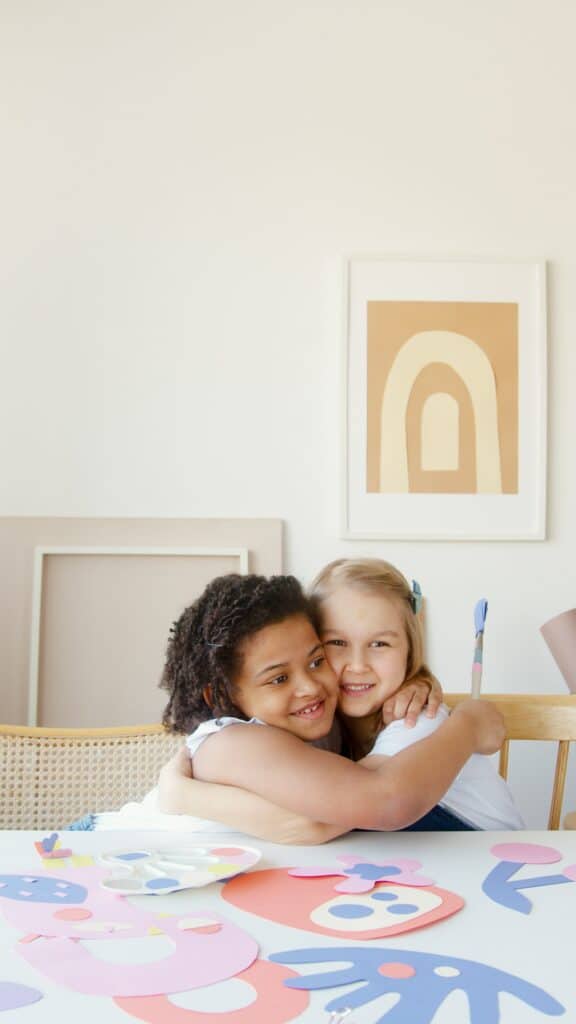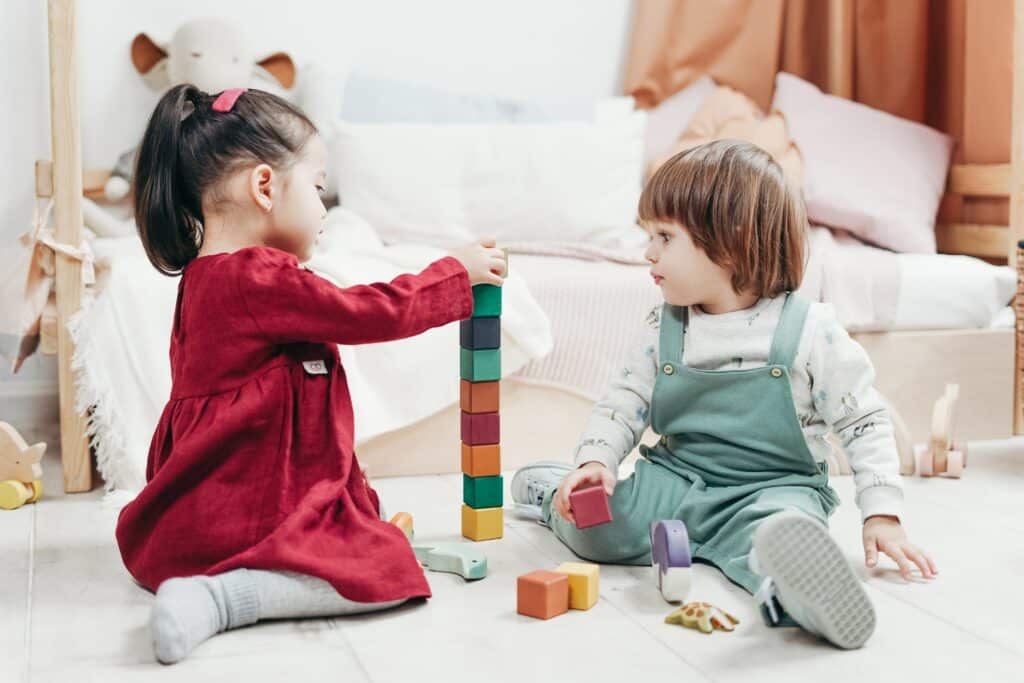Developing social skills is an important part of growing into a well-rounded person.
“Social skills”, “social development” and other similar buzzwords are not just some hokey idea put out there by a crunchy parent, nor are they something to just be glazed over as unimportant or unnecessary. These are skills that we aren’t born with or have instinctually—they are skills that have to be honed and developed with consistency and care.
We all learn and master every skill we have through exposure and practice in situations where we get to stretch ourselves. And children are the same when we put them in social settings.
According to the HiMama Early Childhood Education Blog, “Children need to be in environments where they can learn skills that pertain to safety, security, and self-control, and childcare settings offer excellent opportunities for children to learn how to interact with other children and trusted adults. Because children are around other children and adults, they have more opportunities for social interactions that require and enhance effective social skills.”
Here are a few ways a child can develop their social skills in a daycare or preschool setting.

They Learn How to Get Along with Other Individuals
Getting along with others can be tough sometimes. Different ideas, beliefs, and life choices can cause rifts in adult relationships, and the same is true for relationships between little kids, even if they look a little different.
One child may want to play a game a certain way, and another may want to play it a different way. In these situations of differing ideas, kids have the opportunity to learn how to compromise, empathize, and understand someone else’s point of view.
Being in an environment where they can be walked through these situations with friends and allowed to start to adopt these mindsets for themselves teaches them foundational elements of being a kind, empathetic person.
They Start to Learn How to Process Tough Emotions
Everyone has big emotions that they must deal with, and that couldn’t be truer for any individual than it is for small children.
Many of the emotions they experience—sadness, frustration, anger—are relatively new, especially when first introduced to the feelings in a social setting with friends. Anger, when a toy has been taken from them by a friend, sadness when they get pushed down on the playground, or frustration when they can’t get a particular block to fit in a differently shaped hole, can be big emotional obstacles to the process.
But going through these scenarios is the best way for kids to learn healthy ways to process these emotions and handle the situations. If someone steals their toy, they can take a deep breath and go and ask kindly to have it back. If they get pushed down on the playground, they can work through their sadness by getting a hug from the teacher and then talking to the friend who pushed them and expressing their sadness.
Learning how to process tough emotions and respond to situations in a healthy way in childhood leads to mentally healthy and emotionally stable adults.

They Learn How to Function in a Group of People
Not only can social settings in a daycare or preschool teach kids both individual and one-on-one social development skills, but it also teaches them how to operate in a group of people.
It teaches them about waiting their turn (being patient and considering others), contributing to conversations or lessons and listening to others’ contributions as well (critical thinking and active listening), and it teaches them how to work towards a particular goal and accomplish it with their friends (teamwork).
This may be a broad snapshot of the different social development benefits of daycare and preschool for kids, but it does show how much a child can grow and develop socially and emotionally when in a setting like this.
